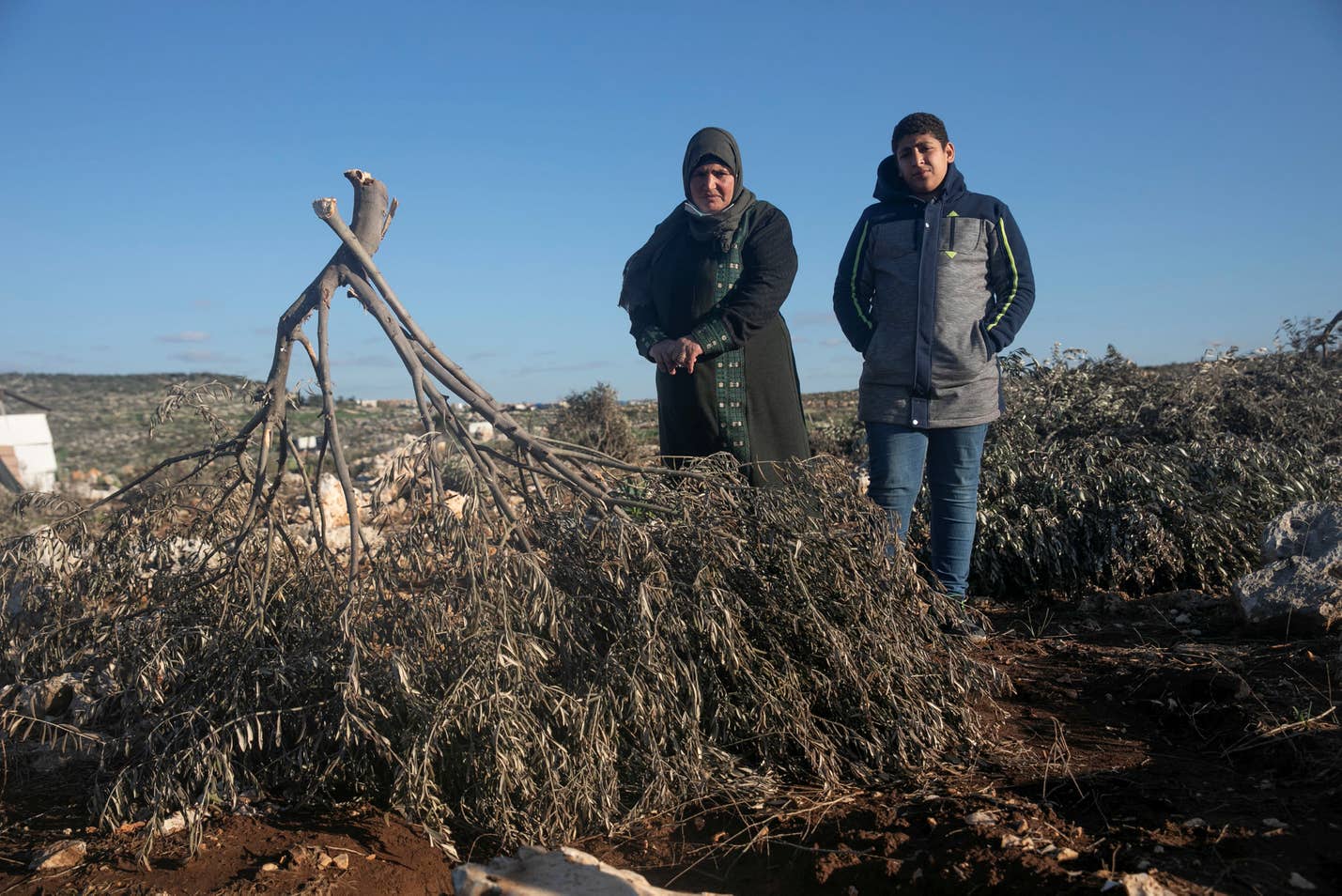When Grazing the Land Means Razing the Land
 Sunday, November 21, 2021 at 11:16PM
Sunday, November 21, 2021 at 11:16PM https://www.haaretz.com/opinion/.premium-when-grazing-the-land-means-razing-the-land-1.10387998
by Amira Hass 16 November 2021

On the hikers' website Amud Anan we’re told that a place called Zvi’s Farm (“Hahava shel Zvi”) was established in February 2019. The Palestinians from the villages in the area, northwest of Ramallah, remember that already at the end of 2018 the settlers began pushing them off their lands. He received a permit to raise cattle for kosher meat in 2018 from Israel’s Chief Rabbinate, as revealed by Kerem Navot, a civil-society organization that monitors and researches Israeli land grab policy in the West Bank.
The Amud Anan website goes on to explain (in Hebrew), “The farm has a herd of beef cattle. The farm’s goal is to preserve the lands of Neveh Tsuf (the Halamish settlement) and to redeem the land.” The description of the farm ends with this request: “We would be glad for help by anyone who wants to help on the ranch.”
Assistance it has from an organization called Hashomer Yosh (The Watchman in Judea and Samaria, after the armed Zionist organization that operated from 1909 to 1920), whose stated purpose is “increasing personal and economic security and restoring national pride and faith to farmers and shepherds” in the West Bank. It helps a lot, too, that the army, the Civil Administration and the police refuse to enforce the law and carry out demolition orders against the farm for its illegal construction.
In the three years since Zvi’s Farm came into the world, the same miracle that occurred for all the other violent Jewish farms and ranches in the West Bank has happened here, too: The authorities haven’t removed Zvi Bar Yosef from the Palestinian land on which he settled. Armed with weapons and a considerable amount of money for a relatively young man, he and his supporters have taken over 2,500 dunams (625 acres) of land that belongs to the villages of Jibiya, Kobar and Umm Safa, according to estimates made by B’Tselem that appear in its report “State Business: Israel’s Misappropriation of Land in the West Bank Through Settler Violence.”
The report makes for difficult reading, even for people well versed in the Zionist enterprise, the redemption of the land and the expulsion of the Palestinians. The report reads like a chapter of history, except that it’s about the present. But unlike the history we Israelis learned in school, here, in the report, we learn about the misappropriation of the land from those who are being expelled from it.
Below is the testimony of Muhammad Abiyat, 63, a resident of Umm Safa, to a B’Tselem field researcher: “This settler and the people who live with him treat our lands as if they were their own. He drives out any Palestinian he sees – farmers, landowners, hikers out strolling in nature, and residents picking wild herbs.
“They have a herd that grazes on everything: on what’s green, dry, whatever they find in their path. The herd descends on the groves and fields like a swarm of locusts and destroys our trees and crops. It also destroys stone walls, holy burial sites and ancient ruins.
- Settlers attack Israeli activists helping Palestinian farmers in West Bank
- Settler attacks activist helping Palestinians harvest olives near West Bank outpost
- Israeli settlers pepper spray Red Cross workers monitoring Palestinian olive harvest
“Over the last two years, settlers have showed up and chased me whenever I’ve tried to reach my olive groves. We haven’t harvested the olives and have lost two years of income. Last year, I lost 10,000 shekels [$3,100]. In August 2019, I went with a relative to my olive grove to check on the trees ahead of the harvest. Suddenly, the settler Zvi appeared with a teen who was holding a stick. They were grazing cattle on my grove. When I tried to drive the cattle away, Zvi attacked me and ran after me, throwing stones. He could have killed me. Luckily, a guy from my village showed up and made them leave.
“In February 2020, we were on our way to our land when settlers started chasing us. They came all the way up to our homes, a distance of three kilometers. They broke the branches of five olive trees before our very eyes. In October 2020, I went to check on my olive grove before the harvest again, and again they threw stones at me, chased me with sticks, and threatened me with firearms. Zvi told me, ‘You’re not allowed to come here.’ He said we have no land there and that all the land there is a gift God gave them.”
-------------------------------------------------------------------------------------------------------------------------
 APJP |
APJP |  Post a Comment |
Post a Comment |